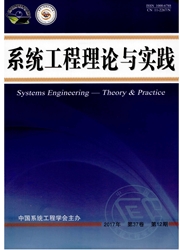

 中文摘要:
中文摘要:
本文在终极控制人代理框架下,研究了三种不同控制机制的控制权私利水平与行为特征.结果表明:1)控制人私利水平与两权分离度正相关,与控股股东现金流权负相关,与股东权利法律保护程度负相关;2)双重股权结构下,终极控制人控制权私利水平随着优先股投票权倍数的增大以边际递减的速度增加,通常选择10倍投票权的优先股设置模式;金字塔股权结构下,终极控制人控制权私利水平随金字塔层级增加以边际递减的速度增大,通常选择3层左右的控制链层级模式;交叉持股结构下,终极控制人控制权私利水平随集团内控制的公司数量增加而增大,倾向于创建庞大的“企业帝国”;3)数值模拟显示,我国上市公司终极控制人控制权私利水平在6%-8%之间.
 英文摘要:
英文摘要:
In this paper, we examine the characteristics of private benefits behavior of control by different modes of the separation of control rights from cash flow rights under the framework of ultimate owner agency. The results show that: 1) the level of private benefits of control has a positive correlation with the separation of the two rights, a negative correlation with cash flow rights of the controlling shareholder and a negative correlation with the degree of legal protection of shareholders' rights; 2) in a dual-class equity structure, the level of private benefits of control of the ultimate owner increases with multiples of voting rights of the superior class by diminishing marginal speed and the most common arrangement is a 10:1 structure in which the superior class has ten votes per share and the inferior class has one vote per share; in a pyramid equity structure, the level of private benefits of control of ultimate owner increases with tiers of the pyramid by diminishing marginal speed and the ultimate owner usually controls the operating company by a three-tier pyramid control chain; in a cross-ownership structures, the level of private benefits of control of ultimate controller increases with the number of companies within the group and the ultimate controller tends to create a huge business empire; 3) the numerical results show that the levels of the private benefits of control of the ultimate controller of China's listed companies are between 6% and 8%.
 同期刊论文项目
同期刊论文项目
 同项目期刊论文
同项目期刊论文
 Financial relationships, banking structure and financing constraints: evidence from private enterpri
Financial relationships, banking structure and financing constraints: evidence from private enterpri 期刊信息
期刊信息
